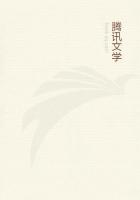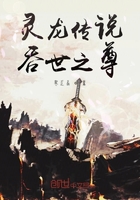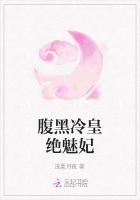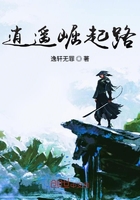Walking And Thinking on the Road of Life
我们的时代
Where Are We Heading
Anonymous / 佚名
The paradox1 of our time in history is that we have taller buildings, but shorter tempers2; wider freeways, but narrower viewpoints; we spend more, but have less; we buy more but enjoy less.
We have bigger houses and smaller families; more conveniences, but less time; we have more degrees, but less sense; more knowledge, but less judgment; more experts, but more problems; more medicine, but less wellness.
We drink too much, spend too recklessly, laugh too little, drive too fast, get too angry too quickly, stay up too late, get up too tired, read too little, watch TV too much, and pray too seldom.
We talk too much, love too seldom, and hate too often. We' ve learned how to make a living, but not a life; we' ve added years to life, not life to years.
We' ve been all the way to the moon and back, but have trouble crossing the street to meet the new neighbor. We' ve conquered3 outer space, but not inner space; we' ve done larger things, but not better things.
We' ve cleaned up the air, but polluted the soul; we' ve split the atom, but not our prejudice. We write more, but learn less; we plan more, but accomplish less.
We' ve learned to rush, but not to wait; we have higher incomes, but, lower morals.
We build more computers to hold more information to produce more copies than ever, but have less communication; we' ve become long on quantity, but short on quality.
These are the days of two incomes, but more divorce; of fancier houses, but more broken homes.
These are the days of quick trips, disposable4 diapers, throw away morality, one night stands, overweight bodies, and pills that do everything from cheer, to quiet, to kill. Where are we heading...
If we die tomorrow, the company that we are working for could easily replace us in a matter of days. But the family we left behind will feel the loss for the rest of their lives.
And come to think of it, we pour ourselves more into work than to our family an unwise investment indeed.
So what is the morale of the story?
Don' t work too hard... and you know what' s the full word of family?
FAMILY = (F)ATHER (A)ND (M)OTHER, (I) (L)OVE (Y)OU.
我们的时代就是这样矛盾。楼房高了,脾气却暴了;马路宽了,视野却窄了;付出的多了,拥有的却少了;买的多了,享受的少了。
我们的房子大了,家却小了;生活便捷了,时间却少了;学历高了,见识却少了;知识多了,观点却少了;专家多了,问题也多了;药物多了,健康却少了。
我们喝得太多,花得太多,笑得太少,车开得太快,太易生气,熬夜太晚,赖床太久,书读得太少,电视看得太多,却很少向上帝祈祷。
我们说得太多,爱得太少,且常生怨恨。我们学会的是如何生存,而不是生活。我们延长了寿命,并没有延长生活的期限。
我们成功登月并返回,却不能拜访邻里。我们能够征服月球,却逾越不了自己的内心。我们办事能力大有提高,但是办事质量毫无进展。
我们清洁了空气,却污染了灵魂;我们分离了原子,却抛不掉偏见;我们写得更多,可学到得更少;我们的计划更多,可是完成得更少。
我们学会了奔跑,却不懂得等待;收入水平高了,可道德水准低了。
我们制造了更多的计算机,存储了更多的信息,制造了最多的副本,但是沟通更少了;我们开始渴望数量,却忽视了质量。
这个时代就是这样:有了双收入,也有了更高的离婚率;有了更华丽的房屋,却有了更多破碎的家庭。
这个时代就是这样:有了快速旅游,免洗尿布,败坏的道德,一夜情,超重的身体,以及可以结束快乐走向静止、死亡的药物。我们将走向何方……
如果我们明天就死去,我们所在的公司很容易在数日内找到人来替代我们的位置。但是我们撒手留下的家人却会在余生里怀念你。
仔细想一下吧,我们将太多的精力放在了工作上,而不是我们的家人,这的确不是明确的投资。
那么这则故事的含义何在呢?
不要太拼命地工作,你知道“家”的全称吗?
家=爸爸+妈妈,我爱你们。
鲈鱼的启示
Catch of A Lifetime
Anonymous / 佚名
He was 11 years old and went fishing every chance he got from the dock at his family' s cabin on an island in the middle of a New Hampshire lake.
On the day before the bass season opened, he and his father were fishing early in the evening, catching sunfish and perch with worms. Then he tied on a small silver lure1 and practiced casting. The lure struck the water and caused colored ripples2 in the sunset, then silver ripples as the moon rose over the lake.
When his peapole3 doubled over, he knew something huge was on the other end. His father watched with admiration as the boy skillfully worked the fish alongside the dock.
Finally, he very gingerly lifted the exhausted fish from the water. It was the largest one he had ever seen, but it was a bass.
The boy and his father looked at the handsome fish, gills4 playing back and forth in the moonlight. The father lit a match and looked at his watch. It was 10 P.M.—two hours before the season opened. He looked at the fish, then at the boy.
"You' ll have to put it back, son." he said.
"Dad!" cried the boy.
"There will be other fish." said his father.
"Not as big as this one." cried the boy.
He looked around the lake. No other fishermen or boats were anywhere around in the moonlight. He looked again at his father. Even though no one had seen them, nor could anyone ever know what time he caught the fish, the boy could tell by the clarity of his father' s voice that the decision was not negotiable. He slowly worked the hook out of the lip of the huge bass and lowered it into the black water.
The creature swished its powerful body and disappeared. The boy suspected that he would never again see such a great fish.
That was 34 years ago. Today, the boy is a successful architect in New York City. His father's cabin is still there on the island in the middle of the lake. He takes his own son and daughters fishing from the same dock.
And he was right. He has never again caught such a magnificent fish as the one he landed that night long ago. But he does see that same fish again and again—every time he comes up against a question of ethics6.
For, as his father taught him, ethics are simple matters of right and wrong. It is only the practice of ethics that is difficult. Do we do right when no one is looking? Do we refuse to cut corners to get the design in on time? Or refuse to trade stocks based on information that we know we aren't supposed to have?
We would if we were taught to put the fish back when we were young. For we would have learned the truth. The decision to do right lives fresh and fragrant in our memory. It is a story we will proudly tell our friends and grandchildren. Not about how we had a chance to beat the system and took it, but about how we did the right thing and were forever strengthened.
他11岁那年,一有机会就到新汉普郡湖心岛上自家小屋的码头钓鱼。















